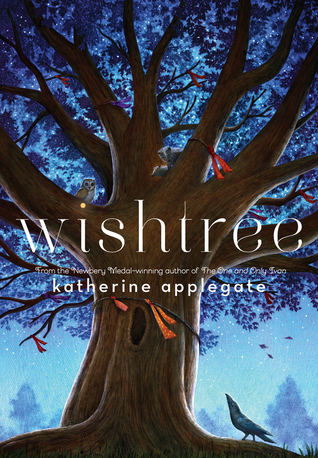My hubby's brief commentary/review was- this is me paraphrasing what he said- " I almost stopped reading within the first chapter. F*ck was throughout the chapter so much it was annoying, distracting, and just too much. I thought the author kept on saying the same thing over and over and the book was not well organized". OK that is me paraphrasing what he said- it's been like a week ago and my memory is pretty much jello.
I however, had a totally different reading experience. Yes I agree that the F*CK word was written a lot in the first chapter, but after that it pretty much was once a chapter if that. I didn't think the book was disorganized, but I think it is written in a different style than my husband is used to. You see the author- Mark Manson, is really known for his blog posts. He lives in New York City and has a following of over two million readers. This book read like a elaborated blog post.
I think I enjoyed this book because it is where I'm at in life- I want and have priorities and the rest of the excess "chatter" in my brain needs to go away so I can focus on the things that are important. I also am known to spend way too much time on things, people, events that don't warrant my time/thought. There were several passages that really spoke to me during this reading and so I couldn't wa to share. Here they are...
pg 13 Look, this is how it works. You're going to die one day I know that's kind of obvious, but I just wanted to remind you in case you'd forgotten...And in the short amount of time between here and there, you have limited amount of f*cks to give. Very few, in fact. And if you go around giving a f*ck about everything and everyone without conscious thought or choice- well then you're going to get f*cked.
I've been trying to work on really making each day count and focus on the present and making sure my daily actions are in line with my focus/my priorities, because life is short and then you die.
pg 17 Maturity is what happens when one learns to only give a f*ck about what's truly f*ck worthy.
Work in progress, but much better at 41 years of age then I was at 31 years of age.
pg 30 'Don't hope for a life without problems,' the panda said. 'There's no such thing. Instead, hope for a life full of good problems.
Yep- life is messy and hard at times and you have to decide the amount of time, effort and brain power you will give to a problem. Make the problem worth the work, worry and time spent on it.
pg 37 Because happiness requires struggle. It grows from problems. Joy doesn't just sprout out of the ground like daisies and rainbows. Real, serious, lifelong fulfillment and meaning have to be earned through the choosing and managing of our struggles.
pg 40 Who you are is defined by what you're willing to struggle for.
If you want to run a marathon you have to train for one and be willing to struggle through that training. If you want to be the highest paid staff in your office you have to be willing to put in the sweat and tears for your work. If you want to be a successful parent and have a good relationship with your child you have to work hard at it. If you want to be best friends with your partner (husband, wife, etc) you have to work at it- we aren't living in fairy tale land.
pg 79 If you want to change how you see your problems you have to change what you value and/or how you measure failure/success.
pg 86 Good values are 1)reality-based, 2) socially constructive, and 3) immediate and controllable. Bad values are 1) superstitious, 2) socially destructive and 3) not immediate or controllable.
pg 87 You'll notice that good, healthy values are achieved internally. Something like creativity or humility can be experienced right now. You simply have to orient your mind in a certain way to experience it. These values are immediate and controllable and engage you with the world as it is rather than how you wish it were. Bad values are generally reliant on external events... while sometimes fun or pleasurable, lie outside your control and often require socially destructive or superstitious mean to achieve.
Good = internal Bad=external
pg 91 If you're miserable in your current situation, chances are it's because you feel like some part of it is outside your control- that there's a problem you have no ability to solve, a problem that was somehow thrust upon you without your choosing. When we feel that we're choosing our problems, we feel empowered. When we feel that our problems are being forced upon us against our will, we feel victimized and miserable.
pg 94 There is a simple realization from which all personal improvement and growth emerges. This is the realization that we, individually, are responsible for everything in our lives, no matter the external circumstances.
We are responsible for everything, we are responsible for everything, we are responsible for everything!
In a world that people are so quick to point fingers or have excuses due to other's actions I think this is a mantra we all should say out loud or in our heads daily- me included.
pg 119 Because here's something that's weird but true: we don't actually know what a positive or negative experience is. Some of the most difficult and stressful moments of our lives also end up being the most formative and motivating.
pg 154 Our most radical changes in perspective often happen at the tail end of our worst moments. It's only when we feel intense pain that we're willing to look at our values and question why they seem to be failing us. We need some sort of existential crisis to take an objective look at how we've been deriving meaning in our life, and then consider changing course.
I always feel like death reminds so many of us about changes we would like to make. Death is a reminder of just how precious life is. Wish we could maintain those thoughts and "life changes" after the pain and memory of the death ceases. I think as said above we all should take that "crisis" and really reflect and decide what is it that gives us meaning in life and then make the sometimes tough changes to make sure that is the path we are on.
pg 161 If you lack the motivation to make an important change in your life, do something--anything, really--and then harness the reaction to that action as a way to begin motivating yourself. I call this the 'do something' principle.
Instead of waiting for motivation/creativity/aspiration instead act and then see what the outcome is and use that as aspiration/motivation to keep going. A little different way to look at things. I think a lot of us have dreams/hopes/aspirations that we spend a lot of time thinking about, but the action never occurs. Hence, no action occurs and no dream/hope/aspiration can be produced. If you do and do and do you then can evaluate the product of the action and move forward in further aspiration/motivation. I liked the "do something" principle.
pg 184 If people cheat, it's because something other than the relationship is more important to them.
Thanks to Mark Manson for writing such a thought provoking book. As you can see I busted out the good old page markers to keep track of all the great quotes I shared above. Hope you gleamed a little something from my sharing of my favorite lines from this book. Happy Reading!









